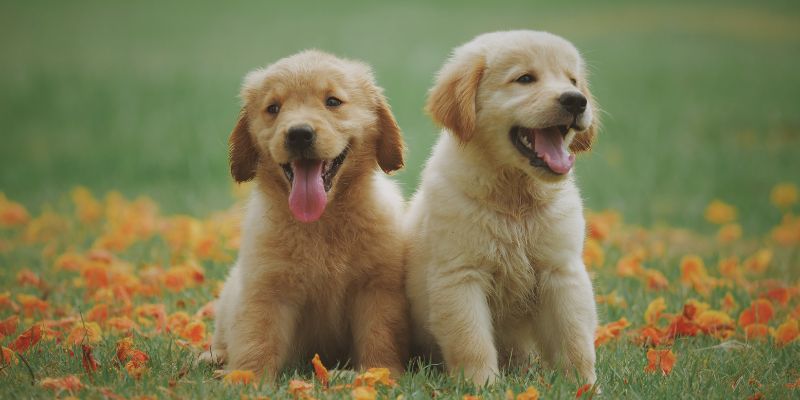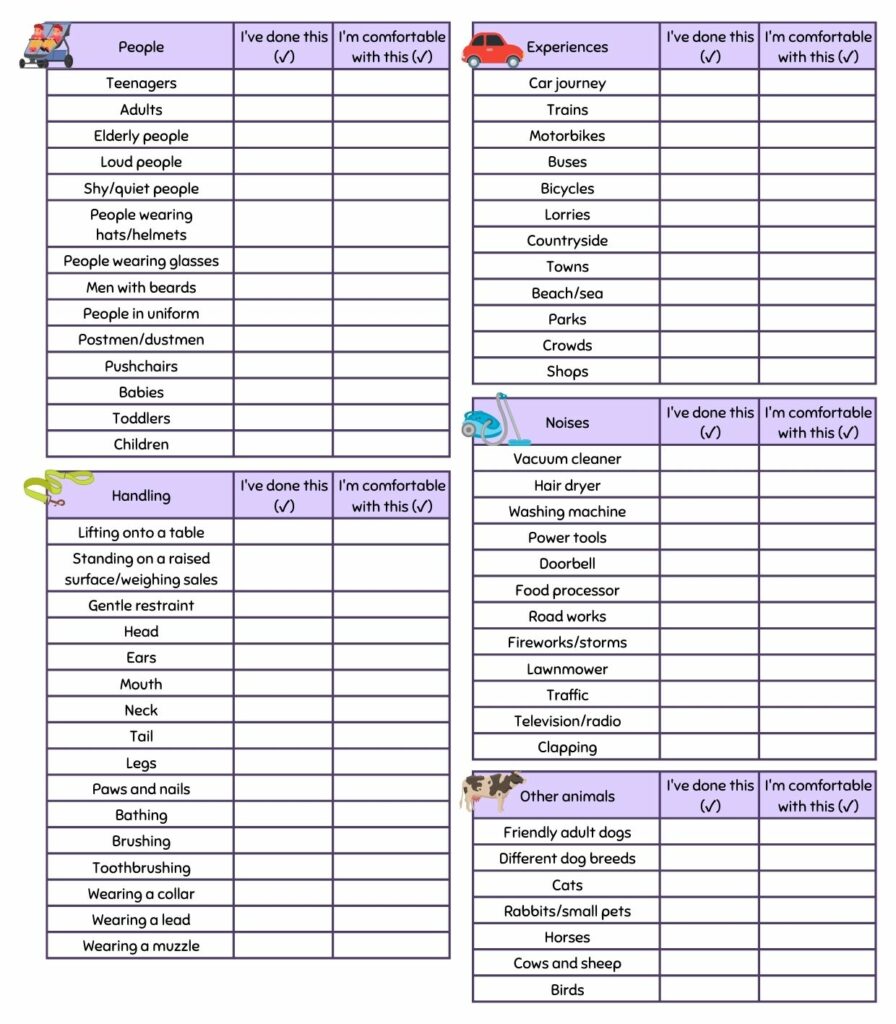 Puppies experience the world around them through what they see, hear, taste and smell. While they are young and inquisitive, it is best to expose them to as many routine and novel situations as possible to help them grow into happy, sociable and confident dogs. That’s why we run puppy confidence classes every Thursday for all registered puppies aged 9-16 weeks that have had their first vaccination.
Puppies experience the world around them through what they see, hear, taste and smell. While they are young and inquisitive, it is best to expose them to as many routine and novel situations as possible to help them grow into happy, sociable and confident dogs. That’s why we run puppy confidence classes every Thursday for all registered puppies aged 9-16 weeks that have had their first vaccination.
The main socialisation period in puppies occurs between 4 and 12 weeks of age. During this time their ability to form social relationships is increasing and they have a strong desire to interact with their surroundings. It is during this period that it is best to positively expose them to as many different surroundings and different people as possible. You can find a socialisation chart below which lists a range of stimuli to expose your puppy to during their socialisation period. It is important to remember that although your puppy cannot go out for walks until two weeks after their second vaccination, you can carry them outside to begin exposing them to these different stimuli – this will put them in good stead for when they’re walking on their own four paws in the big wide world!
 At around 14 weeks of age, puppies go through their first “fearful stage” during which they can be easily frightened. Any new exposures during this time need to be done carefully and positively to prevent an anxious and unsure response as this can lead to phobias or behavioural problems. As they get older, they begin to use their previous associations and experiences more to help guide their actions which is why positive exposure from the beginning is so helpful. It is suggested that puppies go through a second fearful stage just before puberty at around 4-6 months where they have a heightened sensitivity to fearful situations.
At around 14 weeks of age, puppies go through their first “fearful stage” during which they can be easily frightened. Any new exposures during this time need to be done carefully and positively to prevent an anxious and unsure response as this can lead to phobias or behavioural problems. As they get older, they begin to use their previous associations and experiences more to help guide their actions which is why positive exposure from the beginning is so helpful. It is suggested that puppies go through a second fearful stage just before puberty at around 4-6 months where they have a heightened sensitivity to fearful situations.
Socialising with other dogs is also so important to a puppy’s development to ensure they display behaviour that is appropriate and well-mannered. Your puppy will develop a lot of social skills from playing and interacting with other dogs. But they will also learn a lot from being taught not to run up to every dog they see. Whilst socialising your puppy you should allow them to interact with roughly 50% of the dogs you pass (with the owner’s permission) but you should walk past the other 50% to teach your puppy how to ignore other dogs. This is an important life skill for puppies to have.
Carrying on with frequent and positive interactions throughout adolescence helps to develop their social skills and provides them with the experience required to know what to expect and how to respond appropriately.
Whilst socialising your puppy and exposing them to new and interesting situations, you must approach with a positive attitude as they will feed from your energy. If the puppy begins to react in an anxious or fearful way, do not force them to remain in the situation or tell them off. Instead, calmly remove them from the situation and divert their attention to something fun. It is important to return to that stimuli another time so they can have the opportunity to learn it is not scary.
Call us on 01435 864422 if you would like to book your puppy for a confidence class.

